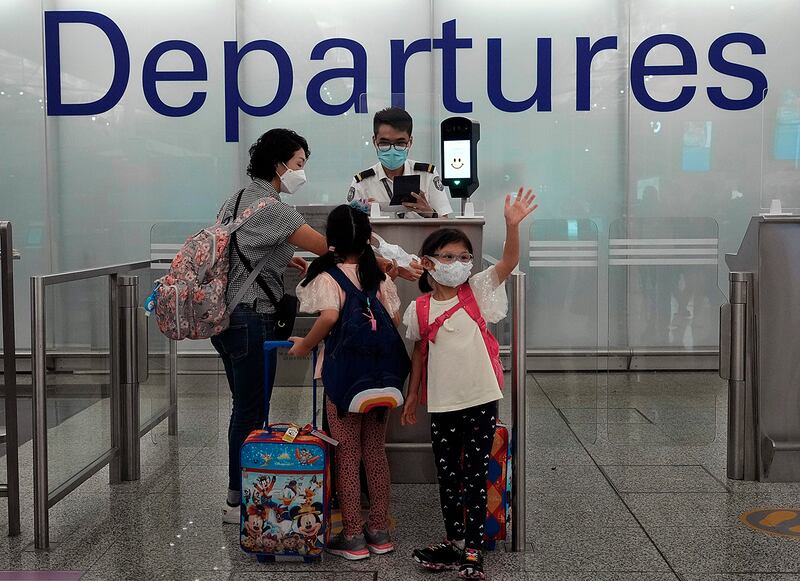As Hong Kong authorities prepare to pass a second national security law, the British government has relaxed some of the immigration rules for people from the city seeking to emigrate to the United Kingdom amid a crackdown on dissent.
The Safeguarding National Security bill, currently before the Legislative Council, includes sentences of up to life imprisonment for treason, insurrection, sabotage and mutiny, and 20 years for espionage.
It can punish people 10 years for crimes linked to "state secrets" and "sedition," and allow the passports of anyone who flees overseas to be revoked.
The legislation is mandatory under Article 23 of its Basic Law, which has provided a constitutional framework for the city since the 1997 handover to Chinese rule.
It was recently rebooted after being shelved following mass popular protests against it in 2003, and is expected to pass this week.
Critics say the ruling Communist Party has a broad and vaguely defined interpretation of many of the crimes in the bill, and that "national security" charges are already being used to prosecute people for peaceful dissent and political opposition in the city.
Relaxed rules
Now, the U.K. Home Office has relaxed the rules for holders of its British National Overseas, or BNO, passport who wish to apply for a visa.
The visa offers a pathway to resettlement and eventual citizenship, making it easier for them to obtain public assistance if they run out of money, smoothing out bureaucratic bottlenecks and allowing them to bring relatives and dependent adults with them with independent visa status.
In February, the United Kingdom loosened requirements for people wanting to emigrate from Hong Kong with their partner under the BNO route to citizenship. To date, at least 191,000 people have applied to the visa program, according to government figures released in November.

The moves, while not huge in scope, will likely smooth the path of many families to resettlement in the United Kingdom, an immigration consultant told RFA Cantonese.
An immigration consultant with the British advocacy group Hong Kong Aid who gave only his surname Chow for fear of reprisals said he has seen an uptick in inquiries about the BNO visa since the government announced it would fast-track the new national security law through the legislature.
"My sense is we have been getting a lot more inquiries from Hong Kong about applying for BNO visas and political asylum as the Article 23 [law] has been in process," Chow said.
"We have been getting a call every couple of days since February," he said. Public consultation on the law started on Jan. 30.
Chow said he didn't believe that the rule changes alone were enough to prompt a surge in applications.
A Hong Kong resident who moved to the United Kingdom a few months ago and who gave only the surname Cheung welcomed the rule changes. Now she plans to apply to have her elderly, dependent mother join her.
"It's definitely very beneficial, because I had been worried about this for a long time," she said. "She's very old, and this is about our family's long-term future and career development. We all think the U.K. is a better place."
Moves in Canada
Meanwhile, lawmakers in Canada are calling on the government to make sure that they continue to offer priority processing of applications from Hong Kongers wanting to emigrate to the country, and to take steps to ease bureaucratic bottlenecks for more than 100 applicants.
Parliamentarians Melissa Lantsman and Tom Kmiec said they are concerned about the effects of delays "as the human rights situation in Hong Kong continues to deteriorate and Hong Kongers look for a safe way to exit the city by immigrating to Canada."
"We would like to clarify whether priority processing is still in place as the situation in Hong Kong continues to deteriorate," they said in a letter to the immigration minister.
Aileen Calverley, co-founder and trustee of the London-based rights group Hong Kong Watch, said many Hong Kongers are being faced with delays in processing their applications to emigrate to Canada.
"It is important that the government uphold its commitment and ensure their applications are processed in a timely manner," Calverley said in a statement.
Translated with additional reporting by Luisetta Mudie. Edited by Malcolm Foster.
